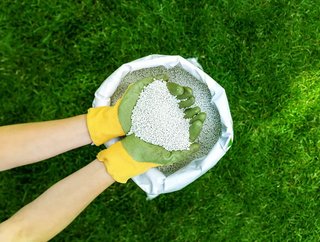How can firms like Northvolt make sustainable fertilisers?

While a fairly recent development, companies that produce batteries have taken more interest in converting battery materials into useable, sustainable fertiliser. Australia was one of the first countries to materialise the idea, which involves recycling precious materials from very battery-powered devices and turning them into fertilisers that support a circular economy.
Envirostream, an Australian company, plays an important role in reducing battery waste, by offering services to make battery recycling easier for consumers and supporting the circular economy. With 6,000 tonnes of alkaline batteries—around 158 million units—sold every year in the country and up to 97% of them ending up in landfills, the business has an important to play to ensure that materials are used to their full potential.
All businesses with a stake in the mining of these materials must consider the effects on the industry if they do not take action to retain them. With mining companies already under pressure to find more resources to meet the demand for electric vehicle (EV) production, innovative methods of recycling them are likely to be in high demand in the future.
How is Northvolt supporting a circular economy?
Northvolt is working with a Swedish startup, Cinis Fertilizer, to produce sustainable fertilisers, by recovering metals from battery manufacturing. An offtake agreement between the two companies will encourage a long-standing partnership between the organisations, resulting in the repurposing of 200,000 tonnes of sodium sulfate salt per year. The process of extracting these materials requires new water treatment technology to be implemented at the Northvolt Ett gigafactory in Skellefteå, Sweden.
‘The recovery of this salt is a prime example of Northvolt’s integration of process technologies to ensure the smallest environmental footprint possible from our manufacturing. The technology we have developed means that a valuable product which would otherwise be considered waste is instead repurposed for commercial markets’, says Emma Nehrenheim, Chief Environmental Officer, Northvolt.
‘This is just one example of the positive outcomes that can be achieved from making investments into circular manufacturing. In this instance the material in play is salt, but in other areas of the Northvolt production process, our engineers are engaged in developing solutions to ensure that water, heat, energy, and other materials that would otherwise be wasted are instead recovered and recirculated to one purpose or another’.
As an eco-friendly brand, Cinis’ aim is to produce environmentally friendly mineral-based fertilisers to support circular economic growth in industries. Jakob Liedberg, Chief Executive Officer of Cinis, says, ‘We share a common goal with Northvolt: creating value-adding products for a fossil-fuel-free future. Through this new partnership, we will produce a fossil-free fertilizer with a close to zero carbon footprint and make a unique contribution towards securing more sustainable agriculture’.
For more sustainability insights, check out the latest issue of Sustainability Magazine.






